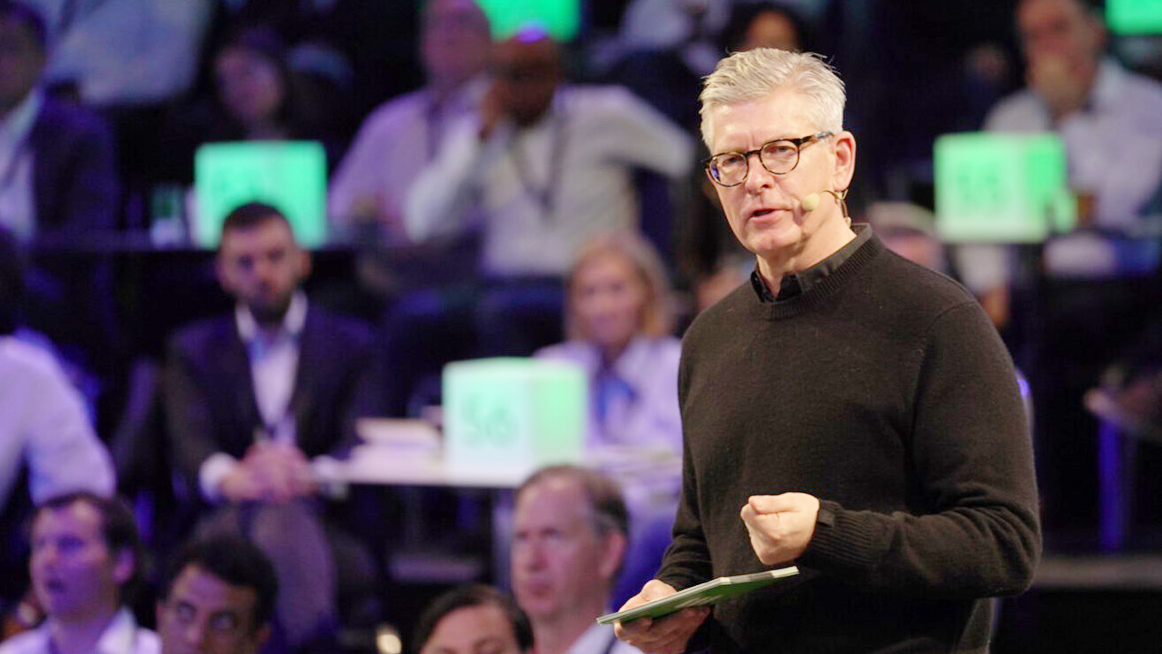Ericsson predicts 2.8 billion 5G accounts by 2025
In a positive adjustment to figures released last year, Ericsson believes Covid-19 will have a positive impact on 5G subscriptions.

Get up to speed with 5G, and discover the latest deals, news, and insight!
You are now subscribed
Your newsletter sign-up was successful
In November 2019, Ericsson released its latest biannual Mobility Report, and announced that it expected the global number of 5G subscriptions to top 2.6 billion within the next six years. But the coronavirus pandemic has forced the company to reevaluate, and it has increased the expected number of 5G accounts by 2025 from 2.6 to 2.8 billion (an increase of 200 million).
At a recent web seminar, Patrik Cerwall, head of strategic marketing at Ericsson, said that the 2020 forecast would also be raised, but did not provide any further detail on what that number might be. But Cerwell did say that "Long-term we look at 2025, 2.8 billion 5G subscriptions”.
Revised numbers
"5G will unlock the potential of the Fourth Industrial Revolution and will be the cornerstone upon which a country’s relative competitiveness is built."
Börje Ekholm, Ericsson.
The revised numbers illustrate how coronavirus is changing the ways we connect, and plan to connect, both now and in the future. And although the global economy has taken a hit, and some sources believe that Europe is set for another recession, for those working in the telecoms sector it could be a different story.
“More than ever, connectivity is key. With the spread of COVID-19, fixed and mobile telecommunications networks have become an even bigger part of the critical infrastructure, showing the importance of quality in the connectivity,” said Ericsson CEO, Börje Ekholm, in a recent keynote.
The next Mobility Report from Ericsson will be released soon, and there will be a focus on how both the public and private sector can benefit from a broader rollout of 5G across Europe.
“5G will unlock the potential of the Fourth Industrial Revolution and will be the cornerstone upon which a country’s relative competitiveness is built,” said Ekholm. “While 4G gave us the app economy, 5G will be the greatest open innovation platform ever.”
Ekholm added that 5G will help drive efficiencies in public services, providing new and more effective modes of delivery, for example in healthcare, education, transport and disaster control.
Get up to speed with 5G, and discover the latest deals, news, and insight!
“It is vital that public policy supports a narrowing of the digital divide. Governments should ensure that every citizen and business will enjoy the benefits of the 5G era equally.”
According to Ekholm, this will rely on countries developing a “common and holistic policy that maximizes investment incentives for the private sector”. And it also requires that countries make sufficient 5G spectrum available, across all bands of 5G – from mid-band to high-band, such as mmWave – as soon as possible and optimizing spectrum assignments to deliver expansive 5G connectivity.
“In this time of crisis, we are prouder than ever of our people, the ones who are helping us connect the world. We have the best people in the industry, and I know I speak for all Ericsson employees when I say that we are, and will continue to be, a significant company on the world stage,” Ekholm concluded.
- Discover the best 5G networks in the UK and US
- Get your hands on the hottest 5G phones
- Millimeter wave: the secret sauce behind 5G
- The complete guide to 5G security
- We reveal the latest 5G use cases
- Discover the truth behind 5G dangers
- 5G towers: everything you need to know

Dan is a British journalist with 20 years of experience in the design and tech sectors, producing content for the likes of Microsoft, Adobe, Dell and The Sunday Times. In 2012 he helped launch the world's number one design blog, Creative Bloq. Dan is now editor-in-chief at 5Gradar, where he oversees news, insight and reviews, providing an invaluable resource for anyone looking to stay up-to-date with the key issues facing 5G.

